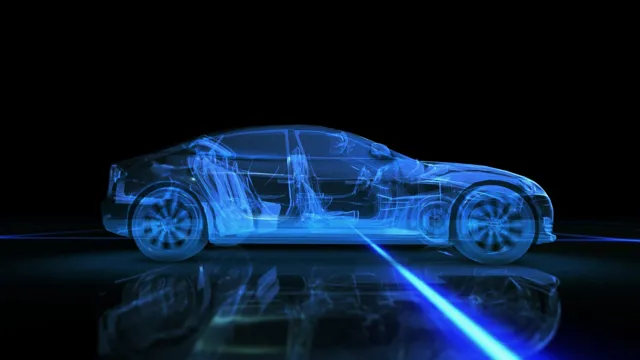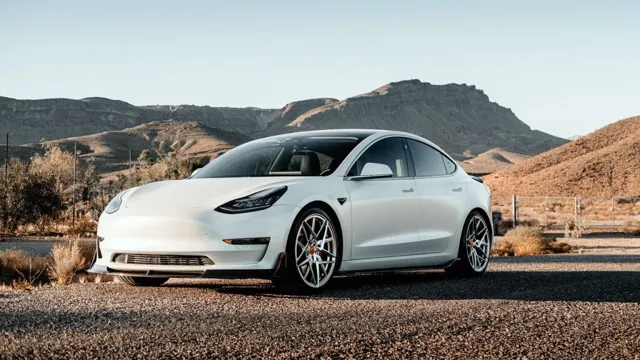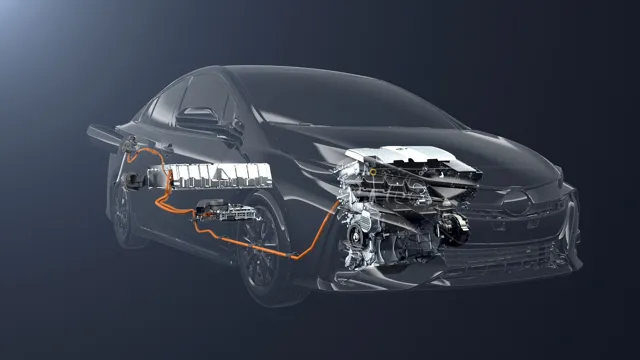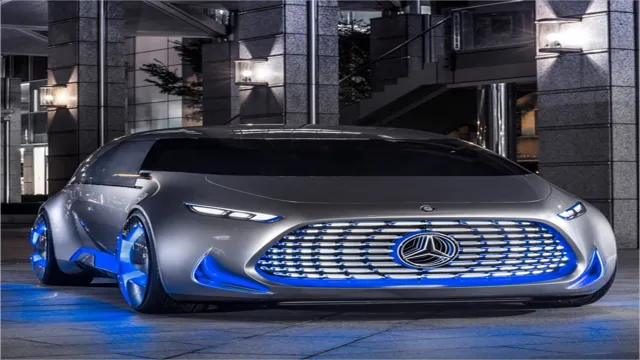Revolutionizing the Future of Transportation: The Emergence of Electric Cars as a Game-Changing Technology
Electric cars have been around for a few decades now, but they are finally gaining popularity as more people become aware of the benefits they offer. The rise of electric cars is not just a fad, but a trend that is here to stay. With gas prices constantly fluctuating and the increasing concern over the environment, consumers are starting to see electric cars as a viable solution.
These cars are powered by rechargeable batteries and produce zero emissions, making them much cleaner and more sustainable than gas-powered vehicles. But what exactly is driving the rise of electric cars? Let’s take a closer look.
Innovative Technologies Driving Electric
One of the most exciting aspects of the electric car revolution is the constant emergence of new technologies that are driving the industry forward. From advancements in battery technology to improvements in charging infrastructure, electric cars are benefitting from a wide range of innovations that are making them more efficient, affordable, and user-friendly than ever before. For example, new battery chemistries are enabling longer ranges and faster charging times, while smart charging networks are making it easier for drivers to find nearby charging stations and manage their energy usage.
Additionally, connectivity features like remote smartphone apps are allowing drivers to monitor their cars from a distance and customize their charging and driving preferences. All of these emerging technologies are helping to accelerate the adoption of electric cars and make them the go-to choice for drivers who care about the environment and want a more convenient, sustainable alternative to traditional gas-powered vehicles.
Battery Improvements
Battery Improvements Electric vehicles are all the rage these days, and it’s no secret that they’re here to stay. One of the biggest concerns that people have when it comes to EVs is battery life and charging time. Thankfully, innovative technologies are being developed that promise to make electric vehicles even more convenient and practical.
For example, solid-state batteries are being touted as the future of EVs because they have the potential to be much safer and more efficient than existing lithium-ion batteries. Another promising technology is wireless charging, which would eliminate the need for plugs and cords altogether. As these improvements continue to develop, electric vehicles will only become more viable as a primary mode of transportation.

Wireless Charging
Wireless charging is a revolutionary technology that has been driving the evolution of electric vehicles. Unlike traditional charging methods that require physical connection to a charger, wireless charging enables vehicles to charge themselves simply by being placed over a charging pad. This technology is not only more convenient for drivers, but it is also more efficient as it eliminates the need for bulky charging cables and reduces the risk of wear and tear on the charging port.
Wireless charging works by using electromagnetic induction to transfer power from the charging pad to the vehicle’s battery. The charging pad contains a coil that generates a magnetic field, which induces a voltage in a second coil located in the vehicle. This voltage is then used to charge the battery.
While wireless charging is still in its early stages of development, it has already been implemented in a number of electric vehicles, and there is a growing trend towards making this technology more widely available. In addition to its benefits for electric vehicles, wireless charging also has the potential to change the way we power a wide range of devices, including smartphones and other mobile electronics. For example, wireless charging pads are already available for many popular smartphones, and it is likely that we will see this technology become more widespread in the coming years.
Overall, wireless charging is just one of many innovative technologies that are driving the evolution of electric vehicles. As this technology continues to grow and develop, we can expect to see even more exciting advances that will help make electric vehicles more accessible, convenient, and cost-effective for drivers around the world.
Environmental Benefits of Electric
Electric cars are an emerging technology that presents numerous environmental benefits. One of the key benefits is that they have no tailpipe emissions, which means they don’t emit pollutants into the air. This is significant because traditional gas-powered vehicles emit harmful pollutants such as carbon monoxide, nitrogen oxides, and particulate matter.
When compared to gas-powered cars, electric vehicles have lower greenhouse gas emissions, which contribute to climate change. Additionally, electric vehicles can help reduce noise pollution, since they operate more quietly than gas-powered vehicles. Overall, the shift towards electric cars is important in reducing our carbon footprint and improving air and noise quality in our communities.
As the world becomes more environmentally conscious, electric vehicles will play an increasingly important role in the transportation sector.
Reduced Emissions
Electric vehicles are a great option for those looking to reduce their overall carbon footprint. Unlike traditional gas-powered vehicles, electric cars emit fewer greenhouse gases into the environment. This is because electric vehicles run entirely on electricity, which creates fewer emissions than gasoline.
In addition, the electricity used to power these vehicles can come from renewable energy sources, like wind or solar power. This means that electric cars are not only reducing emissions, but they are also helping to remove our dependence on fossil fuels. The environmental benefits of electric vehicles are tremendous, and they are becoming increasingly accessible and affordable to consumers.
By making the switch to an electric car, you can do your part to help protect the planet and reduce your impact on the environment.
Sustainable Energy
Sustainable Energy One of the most significant environmental benefits of electric vehicles is their positive impact on air quality. Compared to traditional gas-powered vehicles, EVs emit few to no harmful pollutants and greenhouse gases into the atmosphere. This means that EVs can play a crucial role in reducing air pollution and minimizing the adverse effects of climate change.
Additionally, EVs can help lower the demand for fossil fuels, which are the primary drivers behind climate change. By supporting the growth of renewable energy sources like wind and solar, EVs can help create a more sustainable and resilient energy system. Ultimately, electrifying transportation can play a vital role in mitigating the worst effects of climate change and ensuring a healthier and more prosperous future for all.
Climate Change Mitigation
Climate Change Mitigation, Electric Vehicles, Environmental Benefits Electric vehicles have been gaining popularity amongst consumers concerned about the environment. These vehicles have a significantly lower carbon footprint than those that rely on fossil fuels. They produce fewer greenhouse gases and other pollutants that contribute to climate change, improving air quality in urban areas and decreasing the amount of harmful pollutants that people breathe in every day.
According to studies, electric vehicles can reduce carbon emissions by more than 50% compared to traditional petrol/diesel cars, making them a vital tool in mitigating climate change. While electric vehicles might have a higher upfront cost, the long-term environmental and economic benefits for the planet and individuals outweigh the initial price tag. If governments incentivize the adoption of electric vehicles, it will be possible to accelerate their production and reduce their cost, benefiting humanity and the environment while reducing our carbon footprint.
Economic Advantages of Electric Cars
Electric cars are an emerging technology that has the potential to revolutionize transportation and provide economic benefits. One significant advantage of electric cars is that they are highly energy-efficient, which can lead to cost savings for drivers. Electric cars can also rely on renewable energy sources like solar or wind power, reducing dependence on non-renewable fuels and potentially lowering energy costs even further.
Additionally, electric cars require less maintenance than traditional combustion engine vehicles, as they have fewer moving parts and no need for oil changes. This can save drivers money on regular maintenance and repair costs, making electric cars a more economical choice in the long run. As electric car technology continues to improve and become more mainstream, the economic benefits are likely to become even more apparent, making them an attractive option for conscientious and cost-conscious consumers.
Lower Fueling Costs
Electric cars offer several economic advantages over traditional gasoline-powered vehicles. One of the most significant benefits is the lower cost of fueling an electric car. While gasoline prices can fluctuate wildly depending on supply and demand, electricity prices tend to be more stable.
Additionally, the cost of electricity is typically lower than the cost of gasoline, resulting in lower fueling costs for electric car owners. In fact, studies have shown that electric cars can be up to three times more efficient than gas-powered cars, resulting in significant long-term savings. Moreover, with advances in battery technology, electric cars can now travel longer distances on a single charge, further reducing the need for frequent refueling.
All in all, electric cars offer an attractive economic proposition for drivers looking to save on fueling costs and reduce their carbon footprint.
Government Policies and Incentives
As electric cars continue to gain popularity, many governments are offering incentives to encourage their use. These policies can include tax credits, subsidies, and reduced tolls or parking fees. The economic advantages of electric cars are numerous.
For one, they have a lower cost-of-ownership than traditional gas-powered vehicles. Electric cars are also more energy-efficient and produce fewer emissions, making them a more environmentally-friendly option. When combined with the government incentives, the cost savings can be significant.
Additionally, owning an electric car can open up access to exclusive carpool lanes and high occupancy vehicle (HOV) lanes, reducing commuting time and increasing efficiency. Overall, the government policies and incentives in place today make owning an electric car an appealing and practical choice for many drivers. So why not take advantage of these perks and make the switch to electric?
The Future of Electric Cars
Electric cars are an emerging technology that is rapidly changing the way we think about transportation. While they were once viewed as a niche market, today’s electric cars are becoming more mainstream and accessible than ever before. These vehicles promise to be more environmentally friendly, more affordable, and offer greater performance than traditional gas-powered cars.
Advancements in battery technology and charging infrastructure have made it possible for drivers to go further on a single charge and to charge their cars quickly and conveniently. As a result, many experts predict that electric cars will become the dominant form of transportation in the not-too-distant future. The development of these electric cars is not only beneficial for the environment, but also for the consumers who would enjoy the efficiency and lower cost of operating these vehicles.
The future of transportation is both exciting and promising with the emerging technology of electric cars leading to zero emissions and away from fossil fuels, with renewable and cheaper energy sources available at the forefront.
Conclusion
In conclusion, electric cars are the shiny new toys of the automotive world, and they’re quickly becoming an emerging technology that’s hard to ignore. With their sleek designs, eco-friendliness, and impressive performance, electric cars represent a major step forward in transportation innovation. While some may argue that the electric car is still in its infancy, it’s clear that the technology is rapidly evolving and gaining popularity.
So, whether you’re a die-hard gearhead or a tree-hugging environmentalist, there’s no denying that electric cars are here to stay – and they’re only going to get better from here on out!”
FAQs
What are electric cars?
Electric cars are vehicles that run on electricity instead of gasoline or diesel. They have batteries that store the electricity and an electric motor that powers the car.
How do electric cars compare to gasoline cars in terms of performance?
Electric cars have excellent acceleration and are often quieter and smoother to drive than gasoline cars. However, they may have less range than gasoline cars and take longer to charge.
Are electric cars better for the environment than gasoline cars?
Yes, electric cars emit zero emissions while driving, making them much cleaner for the environment than gasoline cars. However, the electricity used to charge the car may not be from a renewable source, so it’s important to consider the source of the electricity.
What is the current state of the electric car market?
The electric car market is growing rapidly, with more models being introduced by major car manufacturers. Prices are also coming down, making electric cars more accessible to consumers. However, there are still some barriers to widespread adoption, such as range anxiety and lack of charging infrastructure.






